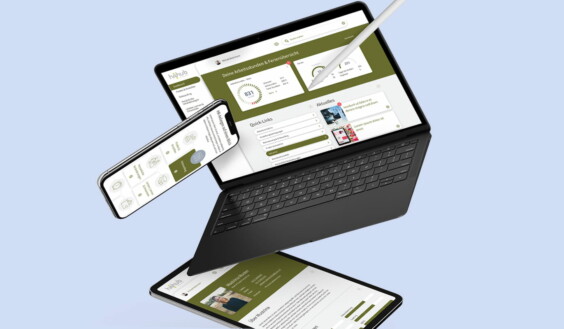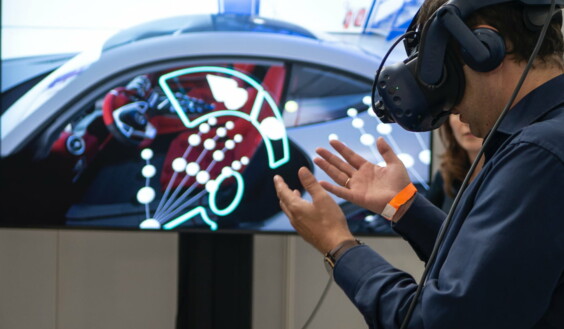Product vision
Your success begins with a vision
Innovation can be developed step by step. Our approach enables you to explore new concepts and shape a product vision. We analyze existing challenges, ideas, and strategies and derive innovation opportunities from them.
Innovation is not a magic trick
Forget the myth: Innovation comes from a genius sitting in a basement with a brilliant idea. Innovation means identifying and solving problems and/or goals. You’ll be amazed at the ideas you can come up with using this simple and proven method!
Ingredients for successful innovation
- Build innovations around experiences.
- Think of innovations as systems.
- Cultivate a culture of innovation.
- Introduce an innovation process.
We help you formulate your vision and translate it into products that make your company more successful.
Hannes Bitto, Head Product Development, Klenico AG
Thanks to bbv, we have been able to refine our idea further and quickly develop a certified medical product that has been very well received by our customers.
This is how we implement the process with you
With our method, you use a defined process that first separates the problem and the solution and works them out into two spaces.
Problem area:
- Analyze trends
- Know the environment
- Understanding users
- Identify requirements
Solution space:
- Exploring concepts
- Define solutions
- Evaluate visions

Innovation is more than a process – it is a way of thinking.
We bring the right mindset to your team – for example:
- Visualize: Try new things, make mistakes and learn from them.
- Collaborate: Benefit from each other, exchange expertise.
- People-centered: Getting employees on board.
- Openness: Accepting problems for which there are no answers yet.
- Experiment: Test quickly, learn quickly, get early feedback.
Flavio Maspoli, UX Designer/Consultant, bbv
Don’t wait for a wake-up call from your customers to alert you to trends you’ve missed. With our methodical consulting, your ideas become tangible, innovation becomes easy, and your company is future-proof.
Methodical consulting product vision
Innovation Workshop
In this workshop, you will develop innovation and vision processes together with our experts in three individually bookable modules. In the first module, we will present best-practice examples. In the second module, we will create a basis for decision-making for your innovation and vision development. In the third module, we will analyze your business challenges and derive innovation potential from them.

Would you like to develop product visions methodically?
Our approach allows you to explore new concepts and develop product visions step by step.
FAQ on product vision
Why is a product vision important for innovation?
A clearly defined product vision is crucial to the innovation process, serving as a strategic guide and source of inspiration. It focuses the team, enables efficient resource allocation, and helps prioritize tasks.
The clarity provided by a product vision allows decisions to be made in the context of long-term goals. This increases the team's agility and adaptability, which in turn significantly increases the likelihood of innovation success.
What are the advantages of getting advice on product vision?
A structured methodology unleashes energy within your company, turning problems, deficiencies, and missed trends into new products and business successes. Our consulting provides an outside perspective and a structured methodology that facilitates the path from vision to successful product.
Why does innovation usually fail?
There are four false assumptions that prevent organizations from achieving systemic innovation:
- Innovation as practiced today is good enough.
- Innovation is only for managers.
- Innovation is only for practitioners.
- Innovation planning is a contradiction in terms.
Does consulting increase the chances of product success?
Absolutely. Successful innovations don't happen by chance. They arise when a clear product vision meets a supportive environment. Our consulting ensures both. In contrast, innovations often fail because they either lack a clear vision or operate in an environment that hinders their development.




